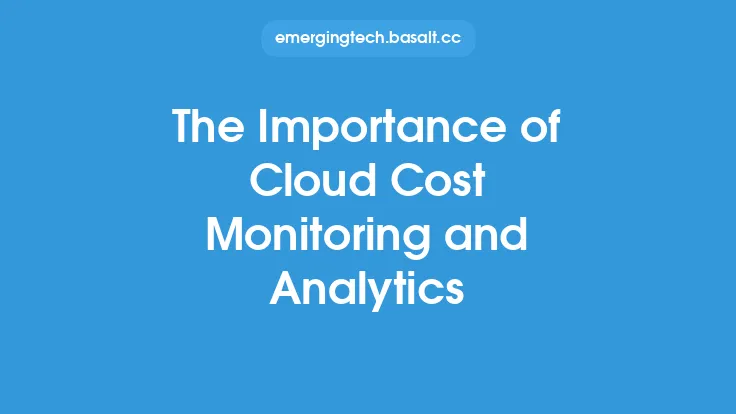The concept of measurement and observation is fundamental to the understanding of quantum mechanics and, by extension, quantum computing. In classical physics, measurement is a straightforward process that does not significantly affect the system being measured. However, in quantum mechanics, the act of measurement itself can alter the state of the system, leading to a range of interesting and counterintuitive phenomena. This article will delve into the importance of quantum measurement and observation, exploring the underlying principles, the different types of measurements, and the implications for quantum computing.
Introduction to Quantum Measurement
Quantum measurement is the process of determining the state of a quantum system, such as the energy level of an atom or the spin of a particle. In quantum mechanics, the state of a system is described by a wave function, which encodes the probability of finding the system in different states. When a measurement is made, the wave function collapses to one of the possible states, a process known as wave function collapse. This collapse is irreversible and cannot be predicted with certainty, only with probability. The act of measurement itself is what causes the collapse, and this is a fundamental aspect of quantum mechanics.
Types of Quantum Measurements
There are several types of quantum measurements, each with its own characteristics and applications. The most common types of measurements are:
- Projective measurements: These measurements are the most common type and involve the projection of the wave function onto a particular basis. The outcome of the measurement is one of the possible states in the basis, and the wave function collapses to that state.
- Positive operator-valued measurements (POVMs): These measurements are more general than projective measurements and involve the use of positive operator-valued measures. POVMs can be used to measure systems that are not in a pure state, such as mixed states.
- Weak measurements: These measurements are a type of measurement that does not cause the wave function to collapse. Instead, the measurement outcome is a probability distribution over the possible states, and the wave function is only slightly perturbed.
The Role of Observation in Quantum Measurement
Observation plays a crucial role in quantum measurement, as it is the act of observation that causes the wave function to collapse. The observer effect, as it is known, is a fundamental aspect of quantum mechanics and has been the subject of much debate and discussion. The observer effect states that the act of observation itself can change the state of the system, even if the observer does not intentionally interact with the system. This effect is a result of the wave function collapse, which is caused by the measurement process.
Quantum Measurement and the Heisenberg Uncertainty Principle
The Heisenberg uncertainty principle is a fundamental principle in quantum mechanics that states that it is impossible to know certain properties of a system, such as position and momentum, simultaneously with infinite precision. This principle is a direct result of the wave function collapse, which occurs during measurement. When a measurement is made, the wave function collapses to one of the possible states, and the uncertainty principle ensures that the other properties of the system are uncertain. The uncertainty principle has significant implications for quantum computing, as it limits the precision with which certain calculations can be performed.
Quantum Measurement and Quantum Computing
Quantum measurement is a critical component of quantum computing, as it is the process by which the outcome of a quantum computation is determined. Quantum computers rely on the principles of quantum mechanics, including superposition, entanglement, and wave function collapse, to perform calculations that are beyond the capabilities of classical computers. The measurement process is used to extract the outcome of a quantum computation, which is typically encoded in the state of a quantum register. The accuracy and precision of the measurement process are critical to the success of quantum computing, as errors in the measurement process can lead to incorrect outcomes.
Quantum Error Correction and Measurement
Quantum error correction is a critical component of quantum computing, as it is necessary to correct errors that occur during the computation and measurement process. Quantum error correction codes, such as quantum Reed-Solomon codes and surface codes, are used to detect and correct errors that occur during the computation and measurement process. The measurement process is used to extract the syndrome of the error correction code, which is then used to correct the error. The accuracy and precision of the measurement process are critical to the success of quantum error correction, as errors in the measurement process can lead to incorrect corrections.
Conclusion
In conclusion, quantum measurement and observation are fundamental aspects of quantum mechanics and quantum computing. The act of measurement itself can alter the state of a quantum system, leading to a range of interesting and counterintuitive phenomena. The different types of measurements, including projective measurements, POVMs, and weak measurements, each have their own characteristics and applications. The observer effect, which states that the act of observation itself can change the state of the system, is a fundamental aspect of quantum mechanics. The Heisenberg uncertainty principle, which limits the precision with which certain properties of a system can be known, has significant implications for quantum computing. Quantum measurement is a critical component of quantum computing, and the accuracy and precision of the measurement process are critical to the success of quantum computing and quantum error correction.





